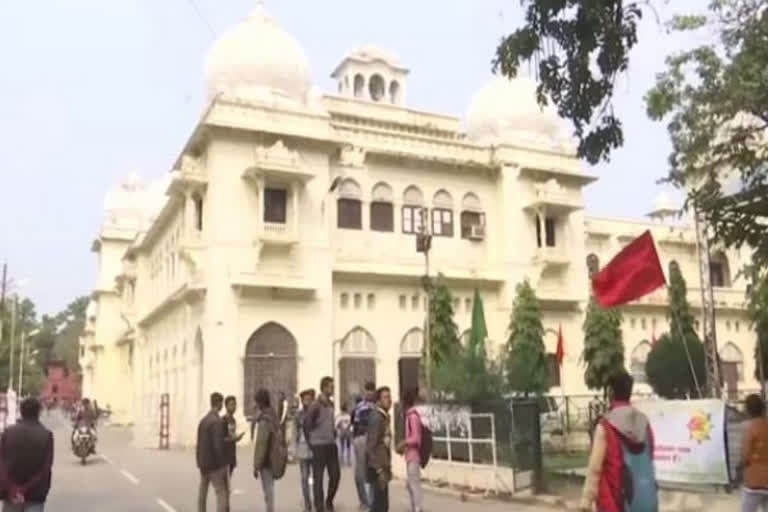Hyderabad: The conduct of certain professors in the universities, which are centres of higher learning and discipline, is alarming. Despite being in a profession that demands ideals and principles, some professors are torturing students and research scholars. Some of them have been accused of sexually harassing students and eventually ended up in jail. Allegations of sexual harassment on three professors have emerged in Andhra University alone over the past ten days. Two of them were summoned for four days, asked to attend counselling sessions and finally let go with a bind over, with a warning of severe consequences if they repeat such behaviour in the future.
The issue came to light after the victims had no other choice but to complain. This problem is not confined to Andhra University alone. Female students across all the universities and colleges are facing such issues. Some are being harassed for money while some others are being sexually abused. Even the students of medical colleges under the aegis of the University of Health Sciences endure such torture while some commit suicide. In 1988, the University Grants Commission (UGC) had issued guidelines about the conduct of professors in universities and colleges.
Basic awareness is needed
For this purpose, the UGC had set up a task force to formulate a code of professional ethics after conducting extensive meetings with representatives of several Indian universities and teaching
staff. Though the professors entering the field of education must follow this code by heart, most of them lack basic awareness about it. Some are not even aware of its existence. As a result, it became a norm for professors to behave as they wished. As there are no strict guidelines about dealing with those who violate the code of conduct, the directives have become redundant. Governments are not proactive in taking stern action against professors who indulge in unethical activities. As a result, universities and colleges are becoming the focal point of political and communal differences.
Read: Upset over love marriage, Ghaziabad man leashed, thrashed by wife's family
Colleges becoming a hub for political differences
There is an increasing craze among the professors for positions such as vice-chancellor, registrar and dean. Instead of inculcating discipline and fine conduct among the students, the professors themselves are getting divided into groups based on the community. In order to strengthen the teaching and research standards in universities, which are central to research and innovation, students must first be empowered to freely express their views. Research scholars do not have the right to question professors who are irregular to classes. If someone complains about the professors, they have to let go of their PhD hopes. Students have to endure any kind of professor that are allocated to them. A student needs the permission of their current guide for a change of guide. With such unwritten rules slapped onto the students, professors are getting away with their misbehaviour.
Read: Cuttack: PM Modi launched first-ever Khelo India University Games
Higher authorities need to step in
In some universities, there have been instances where the recruitment of professors has been hampered due to discrepancies in the selection process. Though the recruitment process has been handed over to higher authorities in the universities, several vice-chancellors have corrupted this process as well. Complaints to the university chancellors about the misconduct of professors have become the norm. Though the governor’s office has given clear instructions about investigating such complaints, the professors are least bothered about it. The complaints are being conveniently ignored citing several reasons and no action is being initiated against the professors.
Committees being set up
Internal complaints committees have been set up to investigate and prevent sexual harassment against women in universities. Due to the lack of personnel in the said committees, most of the complaints are going unnoticed and unresolved. Several instances of professors’ sexual predation have come to light highlighting the loopholes and deficiencies in the system. The real solution to this issue is to amend the outdated rules and regulations. To change this situation, the University Grants Commission must not only reform the guidelines periodically but also provide an environment in which they can be implemented.



